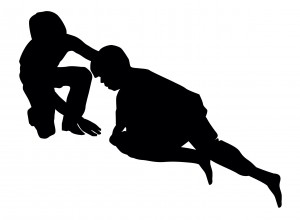
Minnesota is full of smiling faces and happy neighbors, so it’s no surprise to witness a stranger lending a hand to another stranger. There’s a reason the term “Minnesota Nice” exists. But did you know that failing to help someone in their time of need is actually punishable under the law?
That’s right. Under Minnesota’s “Good Samaritan Law,” a person can be found guilty of a petty misdemeanor if they fail to provide reasonable assistance to another person in need of help. As Minnesota statute 604A.01 states:
A person at the scene of an emergency who knows that another person is exposed to or has suffered grave physical harm shall, to the extent that the person can do so without danger or peril to self or others, give reasonable assistance to the exposed person. Reasonable assistance may include obtaining or attempting to obtain aid from law enforcement or medical personnel. A person who violates this subdivision is guilty of a petty misdemeanor.
Minnesota isn’t alone. In fact, all 50 states have some form of a good Samaritan law on the books.
Legal Obligation to Help
Prior to the implementation of the good Samaritan law, the state placed no legal obligation on a person to voluntarily help another person in times of peril. Many people in these situations feel a moral obligation to assist, but lawmakers thought lives could be saved if they added a legal obligation, so long as the helper is protected.
To protect those who would render aid, lawmakers added a few clauses to the law. The first, as mentioned above, states that a person is only legally obligated to help if they can assist “without danger or peril to self or others.” For example, a passerby is not legally obligated to run into a burning building to ensure everyone made it out safely. A person is only required to assist if they can do so without endangering themselves or others.
Another protection described in Subdivision 2 of the law states that a person providing assistance is immune from civil liability for negligence while providing care. For example, imagine you’re sitting next to a couple at dinner when the man begins to choke on his steak. You rush over and execute the Heimlich maneuver, which dislodges the stuck food, but also slightly cracks the man’s rib in the process. You would not be held liable for damages in this situation because you were providing the best care you could, and the injury was not the result of further negligence. An example of further negligence would be parking in the right lane of a highway to assist someone on the side of the road who is having a medical emergency. By not pulling all the way off the road, you’re endangering every other driver on the road, and if an accident occurs, you could be held liable.
In the state of Minnesota, a petty misdemeanor carries a maximum fine of $300.





